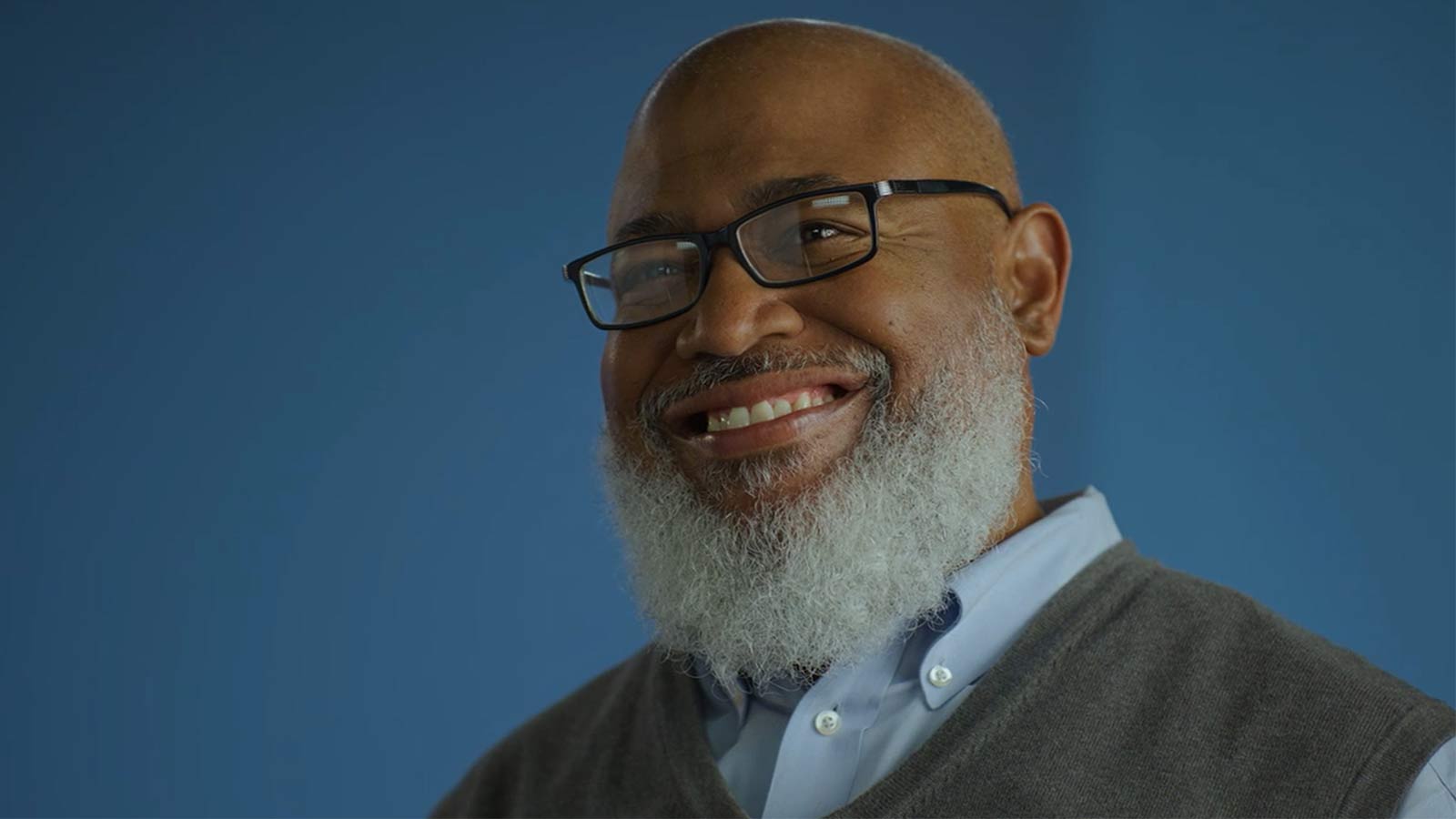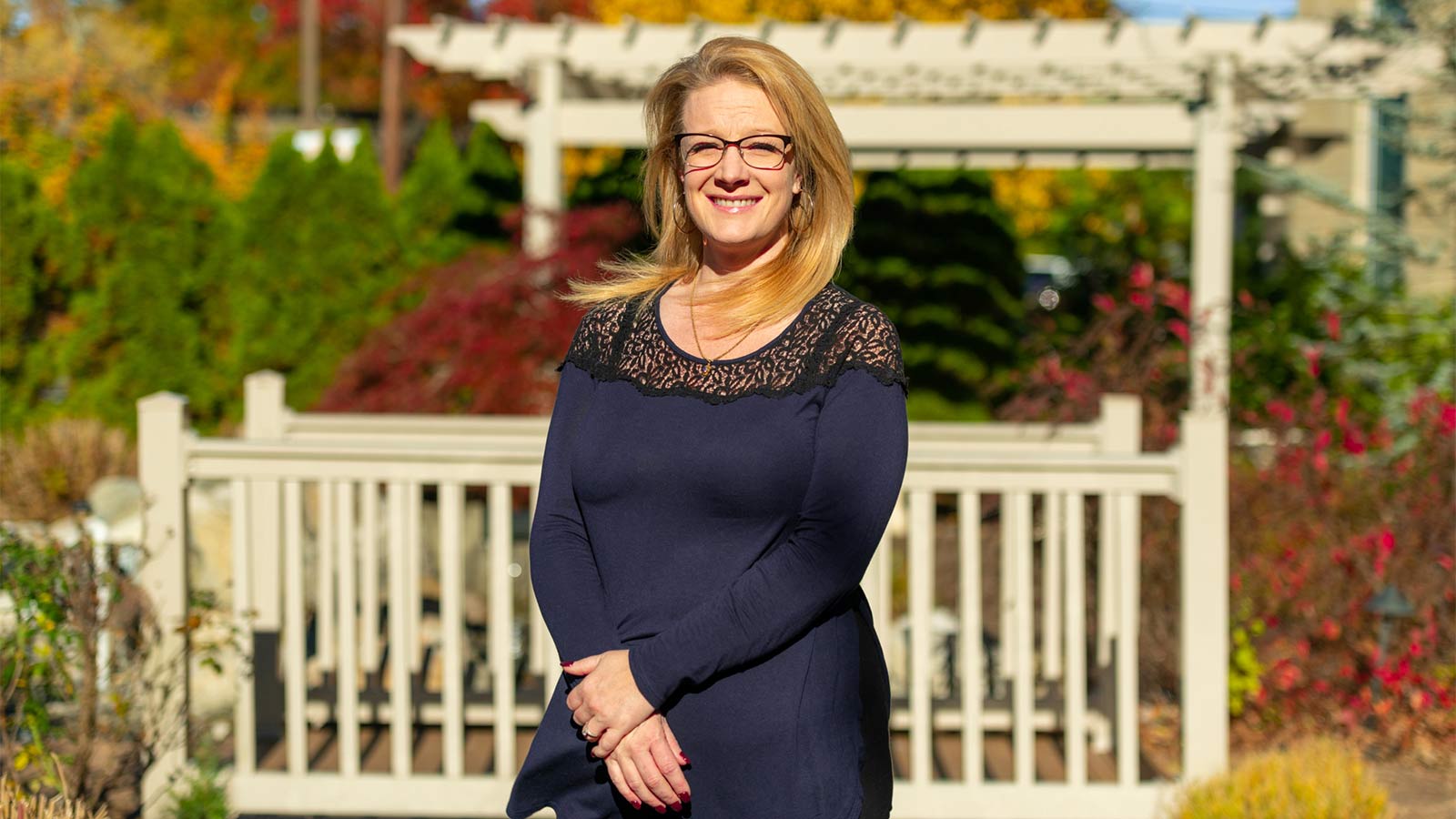A Lung Screening Put Teresa Back in the Race
Teresa feared years of smoking had damaged her lungs. Virtua’s lung screening program caught her cancer, helping her get treated and back to running.
Teresa Nocentino quit smoking in 1989 and, more recently, started running with the goal of completing a triathlon.
But she still worried how 18 years of tobacco use had damaged her lungs. When she learned of Virtua Health’s lung cancer screening program, she spoke to her doctor, and they agreed that she should have the test.
Thanks to Teresa’s proactive approach and diligent monitoring, her early-stage lung cancer was successfully detected and treated.
Early detection made the difference
Based on Teresa’s smoking history and age—as well as her family history of cancer—she met the lung screening criteria. The screening is a noninvasive, painless imaging test performed using low-dose radiation computed tomography (LDCT) technology, also called a low-dose CT scan.
Teresa’s scan revealed a 5-millimeter nodule, a small spot on the lung. In 90 percent of cases, nodules of that size are non-cancerous. Her doctor recommended regular monitoring and screenings every six months to make sure the nodule didn’t change or grow.
“I was surprised but not overly concerned at that point,” said Teresa, a longtime neonatal intensive care nurse at Virtua Voorhees Hospital. “And I was glad I had the screening. It’s better to know about a nodule and keep track of it than find out about it when it’s too late for effective treatment.”
Virtua’s lung screening nurse navigator, Lyn Sheely, RN, helped Teresa stay on track with her follow-up screenings. But in July 2018, after four years of monitoring, Teresa’s scan showed a change.
Virtua’s unique nurse navigation program provides an encouraging and consistent resource for patients. “When a lung nodule is detected, it’s so important to stay on top of your screening schedule,” Lyn advised. “Keep in contact with your pulmonologist and be your own advocate. Ask questions until you have all your bases covered.”
Lung-sparing options
Teresa met with Virtua thoracic surgeon Walter Boris, DO, who is part of the Penn Medicine | Virtua Health Cancer Program. “Dr. Boris is the absolute best,” Teresa said. “He took the time to explain my test results and treatment options. He made me feel like I really mattered.”
Dr. Boris explained that although it would be possible to remove the nodule surgically, its location made it difficult to do a typical wedge procedure. This type of procedure removes the nodule and a small, wedge-shaped portion of lung tissue. Instead, Dr. Boris recommended a lung-sparing, minimally invasive approach called a lingual-sparing upper lobectomy.
“Teresa’s lung function was good because she takes care of her health and had been a nonsmoker for many years,” Dr. Boris said. “I was very conscious of her fitness lifestyle and wanted to give her the best options to preserve as much of the lung as possible.”
Dr. Boris and his colleague, Virtua thoracic surgeon Matthew Puc, MD, successfully removed Teresa’s nodule and several lymph nodes using a technique called video-assisted thorascopic surgery (VATS). The biopsy confirmed that Teresa had stage 1 adenocarcinoma, a type of non-small cell lung cancer. Thankfully, due to early detection, Teresa’s lymph nodes didn’t show any signs of the cancer spreading.
Back in the race
Teresa says she feels great now. Supported by her family, she faithfully goes every six months to have her lungs checked. Dr. Boris says that Teresa’s lung function is better than ever.
“Just eight months after surgery, I competed in a triathlon and placed third in my age group. I also skied in Telluride, Colorado, without any altitude issues,” Teresa said. “If it weren’t for that lung screening, I would have been sitting here today with progressing lung cancer—and not even know it. I’m so grateful to the team at Virtua.”
Scheduling a lung screening
Learn more about Virtua’s lung screening program and eligibility criteria, or request a screening. Lung cancer screenings are covered by most insurance companies, including Medicare and Medicaid. Virtua also offers reduced rates for patients without insurance coverage.
There's So Much More to Explore
Discover expert insights, inspiring stories, health tips, and more by exploring the content below!
Is an At-Home Colon Cancer Test a Good Alternative to a Colonoscopy?

How Do You Manage the Side Effects of Weight-Loss Medications?
A Woman’s Four-Step Guide to Fight Back on Back Pain

What You Need To Know About Carpal Tunnel Syndrome

The Truth About Menopause, Weight Gain, and Belly Fat

Shedding Light on Lesser-Known Menopause Symptoms and Solutions

Debunking The Myths About Vaginal Dryness
Inside Look at Blood Vessels Aids PAD Treatment
Denise Davis: Pay Attention to Your Heart Health

What You Need To Know About Stroke Treatment

Prayers Answered: Pastor Gatling on New Mission After Kidney Transplant

10 Smart Ways to Manage Your Diabetes

Signs You May Have Chronic Kidney Disease

5 Essential Winter Foot Care Tips When You Have Diabetes

Sweet Music: Trust, Teamwork Save Justin from Heart Attack

Complex Heart Surgery Nets James a Lifelong Friend

Hepatitis C Kidney Transplant a Blessing For Lee Manns
Special Delivery Organ Transplant Gives Amazon Employee Second Chance

7 Reasons Why You Want Your Surgeon to Be an Expert in Robotics

Colitis Symptoms Under Control, Jennifer Is ‘Living My Best Life’

How Do I Care for a Wound that Won't Heal?

Five Back Pain Risk Factors That You Should Know

Is My Back Pain Normal, or Is It Spinal Stenosis?

Robotic Hernia Surgery Combines Innovative Techniques With Faster Recovery Times

How Does Breast Density Affect Your Mammogram?

Menopause: New Insights Into the Power of Hormone Replacement Therapy
Signs You Should Get Treated For Vein Problems

One New Heart Valve Saves Two Lives in the Tritten Family
What You Need to Know About Heart Failure
Lung Valve Surgery Relieves COPD, Emphysema Symptoms

Lung Screening, Robotic Technologies Get Pat Kicking Up Her Boots Again

Breast Cancer Diagnosis Inspires Catherine to Help Others

Jasmine’s On-Air and Pain-Free After Gallbladder Surgery

When Should I See a Doctor About My Knee Pain?

Quick Action Leads to Jesse's Recovery From Stroke

A Non-Athlete’s Guide to Shoulder Overuse Injuries
Shoulder problems aren’t limited to athletes. Virtua orthopedic surgeon Sean McMillan, DO, explains shoulder overuse injuries and prevention in this article.

A Non-Athlete’s Guide to Shoulder Overuse Injuries

Wide-Awake Hand Surgery Speeds Recovery, Puts Control in Patients' Hands

South Jersey Veteran Thrives After Cross-Country Kidney Donation

3 Ways to Avoid Knee Pain

When Should I See a Doctor for My Hip Pain?

When Should I See a Doctor About My Shoulder Pain?

Is My Back Pain Normal, or Is It Sciatica?

Is My Back Pain Normal, or Is It a Herniated Disk?

When Is It Back Pain, and When Is It Something More?

Watchman Heart Device: a Technological Breakthrough for Blood Clot Prevention

Albert's Emergency Cardiac Surgery Is a 'Story of a Lifetime'

What Can I Do Right Now About My Aching Back?

How Do I Get Rid of This Back Pain for Good?

Can Your Gut Health Affect Your Heart?

When Should I Be Worried About My Neck Pain?
Advanced Heart Failure Therapies Get Bernadine Back to Full Speed

Sarah Wins Back Her Health After Crohn's Disease Diagnosis

Overcoming Addiction, Philip Now Sees More Positive Side to Life
Firefighter's Successful Lung Cancer Care at Virtua
A Lung Screening Put Teresa Back in the Race

A Breast Self-Exam Saved Kristen's Life

Early Treatment is Best to Relieve Hemorrhoid Symptoms

The Top 10 Foods For A Healthy Diabetes Diet

Keeping the Beat: Advanced Heart Surgery for Aortic Aneurysm

Are You At Risk For Chronic Kidney Disease

Local Pastor Makes Kidney Health Mission of Ministry
What’s the Difference Between Type 1 and Type 2 Diabetes?

Is This the Right Time in Your Life for Bariatric Surgery?

All for Bear: Dan Loses Weight to Be His Son’s Kidney Donor

‘Astronomical Changes’: Brain Stimulation Therapy Lifts Ashley’s Depression

Augmented-Reality Surgery Has Bobby Back on Stage, Rocking His New Hip

Hyperbaric Wound Therapy Puts Joette Back in Motion

Robotic Hernia Repair Renews David's Active Lifestyle

